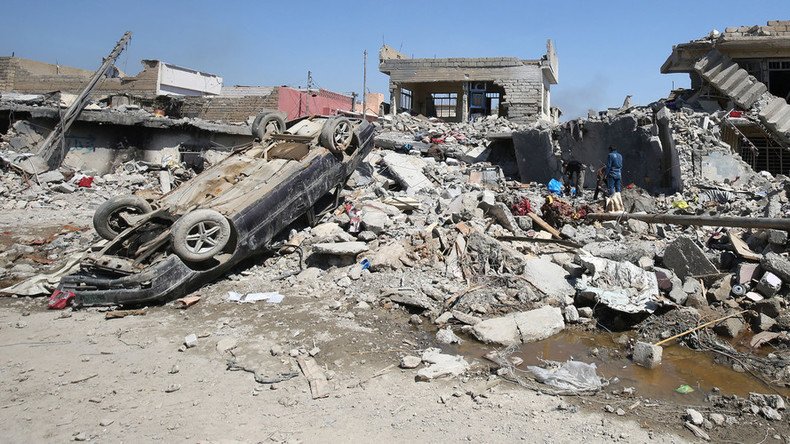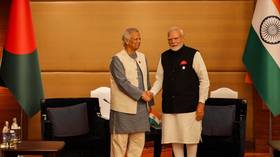‘US ‘annihilation tactics’ will make matters worse in Syria’

The use by the US of so-called ‘annihilation tactics’ against ISIS, which includes dropping huge bombs in densely populated areas, would only make things worse; that’s why the Syrian government denounced the strategy, says investigative journalist Rick Sterling.
The UN has warned about the dire situation facing people in the Iraqi city of Mosul. Up to 200,000 people are trapped there under ISIS.
Civilian casualties are increasing as Washington intensifies its anti-terror campaign.
Meanwhile, the US is also assessing the series of US-led coalition airstrikes that killed dozens of civilians, including children in Syria. However, Damascus has little trust in Washington conducting an official investigation and urged the UN to conduct an independent probe into the bombing.
RT discussed US military tactics in Syria and Iraq with investigative journalist Rick Sterling.
“In fact, they are escalating attacks. They are moving to what they are calling annihilation tactics. Secretary of Defense [James] Mattis says that one of their goals is to basically kill all the foreign terrorists and prevent them from returning to their homes in Europe, North Africa, and North America,” he said.
In Sterling’s view, the US “is getting increasingly reckless in their attacks” both in Iraq and in Syria.
‘Fact of life’: Civilian casualties inevitable amid US tactics of ‘ISIS annihilation’ – Mattis https://t.co/p2AVKCWEBrpic.twitter.com/aRRKHiOVDf
— RT America (@RT_America) May 29, 2017
“It contrasts very much with the comparative caution that was shown by the Syrian and Russian air forces in Aleppo when they developed corridors so that civilians could depart. And they were relatively careful and cautious about the bombing. The US implementing these so-called annihilation tactics seems to set on dropping huge bombs in areas where they know there are a huge numbers of civilians. They are actually going to make the matters much worse, which is why the Syrian government has denounced this new strategy and these new actions by the US,” he said.
The journalist said it’s important actually to distinguish between what Washington says and what it does
“During the 1800’s the Native Americans said that Washington spoke with a forked tongue. I am afraid that characterization is still true today. The US says one thing, but it does another,” he argued.
“Right now the US is escalating its attacks in eastern Syria. They are not mentioning it, but clearly their goal is to prepare the way for installation of forces, which will be counter to the Syrian government. What they say they are going to do and what they actually do are different matters. We need to look at what the Syrian government is saying, which is that the attacks killing innocent civilians are hurting the cause, and the best thing the US air coalition could do would be to clear out and abide by international law.”
Sterling also recalled that “at critical junctures” the US hurt the Syrian army: they attacked the Syrian army in September 2016, in April this year and, also, just a couple of weeks ago they attacked the Syrian army near the border town of Al-Tanf.
“Carrying out massive bombing, killing hundreds and even thousands of civilians is going to hurt the cause and it really stands in sharp distinction from the approach of the Syrian government, which is to use a lot more caution, to negotiate with the terrorists, and to allow civilians to depart areas, before the air attacks begin,” he said.
The statements, views and opinions expressed in this column are solely those of the author and do not necessarily represent those of RT.














